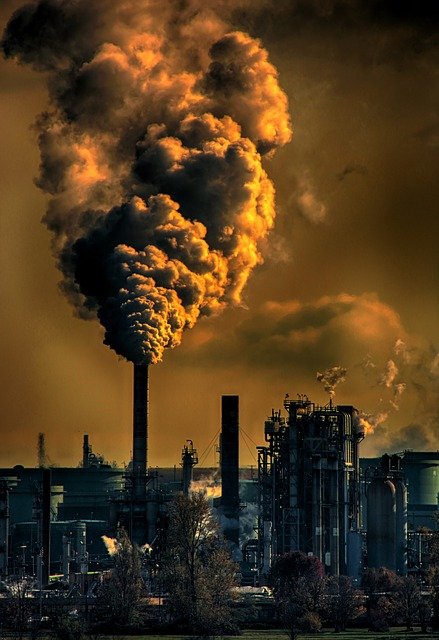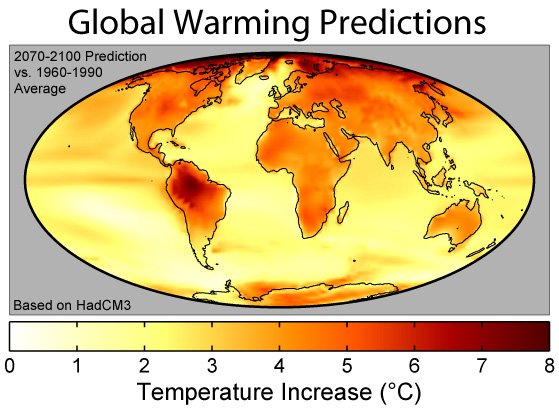Table of Contents
Did you know that the Earth is experiencing climate change due to global warming and the greenhouse effect? The global warming essay explores the major effects of high temperatures caused by atmospheric gases, shedding light on their significance and consequences. In this essay, we will delve into this critical issue and the rapid rise in our planet’s temperature.
The urgency to address climate change and the greenhouse effect cannot be overstated. Our very existence depends on finding solutions to combat this environmental crisis caused by greenhouse gases. Through this essay, we aim to raise awareness about the dire consequences of inaction and inspire action towards a sustainable future.
So, buckle up as we embark on a journey through the complexities of global warming and its impact on Earth’s temperature and the Earth’s surface. Join us as we unravel the causes and effects of greenhouse gases, and discover ways in which we can collectively make a difference. Together, let’s confront the issue of greenhouse gases head-on for the sake of our planet and future generations.
These sample global warming essays will help you in writing an award-winning essay which will help you earn more grades.
Let’s get started!

Understanding Climate Change and Global Warming (Sample 1 Essay On Global Warming Essay)
Climate change and global warming, caused by the greenhouse effect and greenhouse gases, are often used interchangeably, but it’s important to understand the distinction between the two. While climate change refers to long-term shifts in weather patterns, global warming specifically focuses on the increase in Earth’s average surface temperature. These changes are driven by the increased presence of greenhouse gases.
The greenhouse effect is a natural process that helps regulate Earth’s temperature by trapping heat from the sun in our atmosphere. However, human activities have intensified this effect, leading to extreme global warming. When certain gases, such as carbon dioxide (CO2), methane (CH4), and nitrous oxide (N2O), are released into the atmosphere through burning fossil fuels and deforestation, they act like a blanket around the Earth. This traps more heat than necessary, causing a rise in global temperatures. This increase in global temperatures has major effects on the environment and the ozone layer. Additionally, these gases can also impact water resources.
Scientific research has shown an overwhelming consensus that human activities are primarily responsible for the increase in earth temperature. The Intergovernmental Panel on Climate Change (IPCC) reports that there is a 95% probability that humans have been the dominant cause of observed warming since the mid-20th century due to greenhouse gases. This consensus is based on extensive analysis of data collected from various sources worldwide, focusing on atmospheric gases and their impact on the earth’s surface.
Global warming, caused by the increase in greenhouse gases, has far-reaching consequences for our climate system and can lead to significant changes in weather patterns. Extreme weather events such as hurricanes, droughts, floods, and heat waves have become more frequent due to rising temperatures, posing threats to ecosystems, biodiversity, and human health. These changes not only impact our daily lives but also have implications for the availability and quality of water resources on Earth’s surface.
Rising temperatures, caused by global warming, also contribute to rising sea levels as warmer oceans expand and ice sheets melt. This poses a big issue for coastal regions around the world as it increases the risk of flooding and erosion. Small island nations, particularly vulnerable to these rising sea levels, face significant challenges.
Increasing awareness about the changes in the earth’s temperature and global warming is crucial for taking appropriate action. By understanding the science behind these phenomena, we can make informed decisions to mitigate their effects on the earth’s surface. Governments, businesses, and individuals all have a role to play in reducing greenhouse gas emissions and transitioning to cleaner energy sources.
Global warming is a serious issue that affects the entire planet. This global warming essay provides valuable information and can help you write an exceptional essay that will impress your teachers and earn you higher grades. By understanding the causes and effects of global warming, you can effectively communicate the importance of taking action to mitigate its impact.
Causes of Global Warming: Population, Industrialization, etc. (Sample 2 Essay On Global Warming Essay)
Global warming is a complex issue with many causes, both natural and human-induced. Several factors, such as population growth, industrial activities, and deforestation, contribute to the rise in temperatures worldwide. These changes in the earth’s surface have led to an increase in greenhouse gases and a depletion of ozone.
Impact of population growth on carbon emissions
The exponential growth of the global population has caused significant changes in the environment, including increased carbon emissions. As more humans inhabit the Earth, there is a greater demand for resources such as energy, transportation, and food production. These activities release greenhouse gases, primarily carbon dioxide (CO2), which traps heat and contributes to global warming. This rise in temperature further affects the ozone layer.
Human beings heavily rely on fossil fuels like coal, oil, and natural gas for energy generation, contributing to global warming. The burning of these fuels releases substantial amounts of CO2 gases into the air. Deforestation driven by expanding populations further exacerbates the problem by reducing the Earth’s capacity to absorb CO2 through photosynthesis. The resulting changes in the ozone layer have significant consequences.
Role of industrial activities in increasing greenhouse gas emissions
Industrialization has led to significant changes in the earth’s surface, particularly in terms of escalating greenhouse gas emissions. Many scientists agree that human activities, such as manufacturing processes and energy production in industries, are responsible for most of the recent increase in global temperatures. These activities result in the emission of large quantities of CO2 and other greenhouse gases.
For instance, power plants burn fossil fuels to generate electricity needed for various purposes such as lighting homes or running machinery. This combustion process releases copious amounts of CO2 into the atmosphere, contributing to global warming. Similarly, factories emit pollutants from their chimneys while manufacturing goods or processing raw materials, further exacerbating changes in the earth’s temperature and the earth’s surface.
Deforestation as a contributing factor to global warming
Deforestation emerges as another critical cause contributing to global warming. Trees act as natural sinks that absorb CO2 from the atmosphere through photosynthesis, helping to regulate the earth’s temperature and maintain the health of the earth’s surface. However, rampant deforestation destroys vast forested areas around the world, significantly reducing this vital mechanism for removing CO2 from our environment and exacerbating the spread of global warming.
The primary cause behind deforestation is human intervention on the earth’s surface. Forests are cleared to make space for agriculture, livestock grazing, urbanization, and the extraction of natural resources. As a result, carbon sinks are lost, and the balance between CO2 emissions and absorption is disrupted, affecting the spread of disease.
Global warming is a big problem for the entire world. This global warming essay gives important information and can help you write a great essay that will impress your teachers and get you higher grades. By understanding what causes global warming and what effects it has, you can talk about why it’s important to take action to make it better.
Effects of Global Warming on Health and Environment (Sample 3 Essay On Global Warming Essay)
Health risks associated with rising temperatures and extreme weather events
Rising global temperatures and the resulting increase in extreme weather events pose significant health risks to individuals around the world. The greenhouse effect, caused by the accumulation of greenhouse gases in the atmosphere, contributes to the spread of these extreme weather events on the earth’s surface. As temperatures soar, people are more susceptible to heat-related illnesses such as heatstroke, dehydration, and exhaustion. Furthermore, extreme heat can exacerbate existing health conditions like cardiovascular diseases and respiratory problems, affecting the overall health level.
In addition to direct impacts on human health, global warming also leads to the spread of infectious diseases on the earth’s surface. Warmer temperatures create favourable conditions for disease-carrying organisms such as mosquitoes and ticks to thrive, increasing the level of vector-borne diseases like malaria and dengue fever. These infectious diseases pose a serious threat to global public health, making it crucial to address and mitigate their use.
Negative impacts on ecosystems, biodiversity, and wildlife habitats
The effects of global warming on the earth extend beyond human health; they also have detrimental consequences for ecosystems, biodiversity, and wildlife habitats worldwide. Rising temperatures disrupt delicate ecological balances that support diverse plant and animal species, leading to the spread of disease and an increased level of extinction risk. Many species face extinction due to habitat loss or inability to adapt quickly enough.
Furthermore, changes in temperature patterns on Earth affect the spread of disease and migration patterns of birds and animals. This disruption can result in imbalances within ecosystems as certain species become overpopulated while others decline in numbers. Such disruptions have a cascading effect throughout the food chain.
Rising sea levels and their consequences for coastal communities
One of the major effects of global warming is the rise in sea levels caused by melting ice caps and glaciers. This poses a grave threat to coastal communities worldwide as the earth’s temperature increases. As sea levels continue to rise, low-lying areas are at risk of flooding, leading to the spread of disease and displacement of populations living along coastlines.
Coastal erosion is a result of rising sea levels and stronger storm surges. This erosion affects the livelihoods of those living in coastal regions and impacts the tourism industry, which relies heavily on pristine beaches. The accelerated erosion of beaches and coastal infrastructure is a consequence of the earth’s changing temperature.
This global warming essay has important information about it. It can help you write a good essay that will impress your teachers and get you better grades. You will learn about the causes and effects of global warming, and why it’s important to take action to make it better.
Impact of Global Warming on Planetary Ecology (Sample 4 Essay On Global Warming Essay)
Disruption of natural cycles such as the water cycle and carbon cycle
Global warming, a consequence of human activities, has had a profound impact on the delicate balance of our planet’s ecology. One of the most significant effects is the disruption of natural cycles, including the water cycle and carbon cycle. The water cycle, which involves the continuous movement of water between the Earth’s surface, atmosphere, and back again, is being altered by rising temperatures. As temperatures increase, more water evaporates from oceans, lakes, and rivers into the atmosphere. This leads to an intensification of rainfall patterns and more frequent extreme weather events such as hurricanes and floods. These changes can result in the spread of disease, as well as affect the level of available water for use.
Similarly, global warming affects the Earth’s carbon cycle – the process through which carbon dioxide (CO2) is exchanged between living organisms and their environment. With increased levels of CO2 in the atmosphere due to human activities like burning fossil fuels and deforestation, plants are absorbing more CO2 than they can release through photosynthesis. This disrupts the balance in ecosystems as excessive CO2 leads to reduced biodiversity and altered plant growth patterns. The use of fossil fuels and deforestation contribute to the disease of the Earth.
Coral bleaching due to increased ocean temperatures
The warming of our planet’s oceans poses a severe threat to coral reefs – vibrant underwater ecosystems that are home to countless species of marine life. Rising ocean temperatures cause coral bleaching – a phenomenon where corals expel algae living within their tissues due to stress caused by high temperatures. Without these algae providing nutrients for corals through photosynthesis, they lose their colouration and become susceptible to disease. This is a significant concern for the earth’s delicate balance.
Coral bleaching not only impacts the beauty of the earth’s underwater marvels but also disrupts entire marine ecosystems that rely on them for survival. Many species depend on coral reefs for food sources, shelter, breeding grounds, and protection from predators. The loss or degradation of coral reefs due to disease and global warming puts marine life at risk while compromising fisheries that provide sustenance for millions of people worldwide.
Threats to Arctic ecosystems from melting ice caps
The effects of global warming on the earth are particularly pronounced in the Arctic region, where rapid melting of ice caps and glaciers is occurring. This poses significant threats to the delicate Arctic ecosystems and its inhabitants, including polar bears, seals, and walruses. As the ice caps melt, these animals lose their natural habitats and struggle to find food sources, increasing their vulnerability to disease.
Moreover, the melting ice on Earth contributes to rising sea levels globally, which endangers coastal areas and low-lying islands. The loss of land due to erosion and flooding affects human communities as well as wildlife populations that rely on specific habitats for survival from disease.
This global warming essay has important information. It can help you write a good essay that will impress your teachers and get you better grades. You will learn about what causes global warming and what happens because of it. You will also learn why it’s important to do something about it.
Solutions to Combat Global Warming (Sample 5 Essay On Global Warming Essay)
Transitioning to renewable energy sources like solar and wind power is crucial for combating global warming and reducing greenhouse gas emissions. The burning of fossil fuels releases carbon dioxide (CO2) into the atmosphere, trapping heat and contributing to the rise in global temperatures. By shifting our reliance on traditional energy sources to renewable ones, we can mitigate the effects of climate change on the earth. This is especially important in preventing the spread of disease.
Promoting energy efficiency measures on Earth in industries and households is another effective solution to combat disease. Many industries consume vast amounts of energy, often derived from non-renewable sources. Implementing energy-saving practices and technologies can help minimize their carbon footprint and reduce the spread of disease. For instance, upgrading outdated machinery or improving insulation in buildings can lead to substantial reductions in CO2 emissions and mitigate the risk of disease transmission.
Implementing international agreements to reduce greenhouse gas emissions is vital for addressing global warming and its impact on the earth. International cooperation plays a crucial role in tackling this pressing issue of disease caused by climate change. Countries must come together and commit to reducing their emissions through collective efforts and policy changes. Agreements like the Paris Agreement aim to limit global temperature rise, protecting the earth from further disease outbreaks by setting targets for each nation’s emission reduction.
Recycling on Earth can significantly combat global warming. Waste decomposition releases methane, another potent greenhouse gas that contributes to climate change. By implementing efficient recycling programs, we can reduce the amount of waste sent to landfills and decrease methane emissions into the atmosphere.
Reducing CO2 emissions from power plants is crucial for combating global warming and preserving the earth. Power plants, being reliant on fossil fuels for electricity generation, significantly contribute to greenhouse gas emissions. Transitioning these facilities towards cleaner alternatives like natural gas or renewable energy sources can have a significant impact on reducing atmospheric gases responsible for global warming and protecting the earth.
Preserving natural resources is crucial when addressing global warming concerns. Deforestation not only contributes directly to CO2 emissions but also diminishes nature’s ability to absorb these gases through photosynthesis. Protecting forests and planting more trees can help mitigate the effects of global warming by absorbing CO2 and releasing oxygen. Protecting marine ecosystems is vital as oceans absorb significant amounts of carbon dioxide and play a crucial role in regulating the Earth’s climate.
This global warming essay has good info to help you write a great essay. It talks about what causes global warming and what happens because of it. You’ll also learn why it’s important to do something about it.

Media Representation of Global Warming: Ensuring Truthfulness (Sample 6 Essay On Global Warming Essay)
Tackling misinformation about climate change in media coverage
The media plays a crucial role in shaping public opinion and understanding of global issues, including the threat of climate change to the earth. However, misinformation often finds its way into news stories and articles, hindering efforts to effectively address this issue.
To ensure truthfulness in media coverage, journalists and news organizations must prioritize fact-checking and verification. It is essential to distinguish between scientific consensus and individual opinions or conspiracy theories regarding the earth. By basing their reporting on credible sources and peer-reviewed studies, journalists can provide accurate information that reflects the current understanding of global warming and its impact on the earth.
Promoting accurate reporting based on scientific consensus
Global warming is an established fact supported by overwhelming evidence. To promote accurate reporting, journalists should emphasize the consensus among experts on the earth rather than giving equal weight to fringe viewpoints.
One effective approach is to highlight prominent scientific institutions such as the Intergovernmental Panel on Climate Change (IPCC) or NASA that have extensively studied climate change on Earth. Journalists can reference their reports and findings to provide readers with a comprehensive understanding of the issue.
Challenging climate change denialism through responsible journalism
Climate change denialism on Earth persists despite overwhelming evidence supporting its existence. Responsible journalism on Earth plays a vital role in challenging these narratives by presenting factual information backed by science.
Journalists should be vigilant in debunking false claims made by climate change deniers, exposing their lack of scientific basis or conflicts of interest. By highlighting inconsistencies or biases in their arguments, journalists can help readers differentiate between genuine concerns raised by sceptics and baseless denialism. This is important for the health of our earth.
Government-level initiatives for accurate reporting
Ensuring truthfulness in media representation requires collaboration between governments and news organizations at both national and international levels. Governments can take several steps to support accurate reporting on global warming:
- Establishing media literacy programs: Governments can invest in educational initiatives that teach citizens how to critically evaluate information and identify reliable sources.
- Encouraging fact-checking organizations: Governments can provide financial support or incentives to independent fact-checking organizations that specialize in climate change reporting.
- Strengthening regulations and guidelines: Governments can develop clear guidelines for journalists regarding the accurate representation of global warming, discouraging sensationalism or misinformation.
Global warming essay is a topic that provides valuable information for writing an excellent essay. It discusses the causes and consequences of global warming, as well as emphasizes the importance of taking action to address this issue.
Long and Short Global Warming Essays in English
Long-form essays offer a comprehensive analysis of the complex issue of global warming. These essays provide an opportunity to delve deep into the subject, exploring its various aspects over the years. By offering detailed explanations and supporting evidence, long-form essays allow readers to gain a thorough understanding of the topic.
In a long essay on global warming, one can discuss the historical context, examining how this phenomenon has evolved over time. This format allows for an in-depth exploration of the causes and effects of global warming, including scientific research, environmental impacts, and societal consequences. Furthermore, it provides space to discuss potential solutions and mitigation strategies.
On the other hand, short essays serve as a quick source of information on global warming. They are ideal for readers who have limited time but still want to grasp key concepts and facts about this pressing issue. Short essays present concise summaries that highlight important points without overwhelming readers with excessive details or technical jargon.
The advantage of short essays lies in their ability to deliver essential information efficiently. They enable readers to quickly comprehend key ideas related to global warming without investing extensive time or effort. For instance:
- Short essays can outline the primary causes behind global warming such as greenhouse gas emissions from human activities.
- They can provide a snapshot of the immediate consequences we face due to rising temperatures, including extreme weather events and melting ice caps.
- Short essays may also touch upon potential solutions like renewable energy sources or sustainable practices that individuals can adopt in their daily lives.
Both long-form and short-form essays have their merits depending on readers’ time constraints and objectives. While some individuals may prefer delving into comprehensive analyses spanning several pages, others may opt for shorter pieces that offer quick insights.
Short Essay on Global Warming in English
Global warming is an urgent issue that affects our world and the future of life as we know it. It is a term used to describe the gradual increase in the Earth’s surface temperature due to human activities such as burning fossil fuels, deforestation, and industrialization. The heat-trapping greenhouse gases released into the atmosphere cause a rise in temperature, leading to a myriad of problems.
One of the key points about global warming is its alarming rate of spread. Each day, more carbon dioxide and other greenhouse gases are emitted into the atmosphere, intensifying the greenhouse effect. This phenomenon traps heat within our planet like a blanket, causing temperatures to rise at an unprecedented pace. As a result, we witness extreme weather events such as hurricanes, droughts, floods, and heat waves becoming more frequent and severe.
The consequences of global warming extend beyond extreme weather events. The rising temperatures have also led to the melting of polar ice caps and glaciers. This has caused sea levels to rise significantly over time. As sea levels continue to increase, coastal areas face the risk of being submerged underwater. Island nations are particularly vulnerable to this threat.
Moreover, global warming poses a significant threat to our forests and biodiversity. Trees play a crucial role in absorbing carbon dioxide from the atmosphere through photosynthesis. However, deforestation practices have drastically reduced forest cover around the world. With fewer trees available for absorption, carbon dioxide levels continue to rise unchecked.
It is essential for us all to understand that global warming is not just an issue for future generations; it is happening right now before our eyes. We must take immediate action to mitigate its effects if we want to preserve our planet for future generations.
To learn more about global warming and how you can make a difference in combating it, there are various resources available online and offline that offer valuable information:
- Infinity Learn: A comprehensive website offering educational materials on climate change and global warming.
- Year of Living Dangerously: A documentary series that explores the impacts of global warming around the world.
- “The Uninhabitable Earth” by David Wallace-Wells: A thought-provoking book that delves into the consequences of unchecked climate change.
By educating ourselves and spreading awareness, we can collectively work towards finding sustainable solutions to combat global warming. Remember, every small step counts in preserving our planet for future generations. Let’s take action today to secure a better tomorrow.
Word Count Variations: Essays on Global Warming
Discussing the flexibility of word count in global warming essays
Word count variations play a crucial role in shaping the depth and breadth of an essay. The choice of word count can greatly impact the effectiveness of conveying information and ideas. Short essays, typically ranging from 250 to 500 words, require concise writing that captures the essence of the topic. These essays demand precision in selecting words and crafting sentences that deliver maximum impact within a limited space.
In short essays on global warming, brevity is key. Writers must carefully choose their words to convey complex concepts concisely. This allows readers to quickly grasp the main points without getting lost in unnecessary details or lengthy explanations. By focusing on essential information, writers can effectively communicate their ideas while maintaining reader engagement.
Importance of concise writing in short essays
Shorter global warming essays provide an opportunity for writers to present a condensed yet impactful perspective on this critical issue. The limited word count forces writers to distil their thoughts into clear and concise statements, eliminating any fluff or redundancy. This style of writing ensures that every sentence contributes directly to the overall message.
Concise writing not only enhances clarity but also respects readers’ time constraints. In today’s fast-paced world, people often prefer shorter texts that can be easily consumed amidst their busy schedules. Short essays on global warming allow readers to gain valuable insights without investing excessive time or effort.
Benefits of longer essays for in-depth exploration and analysis
While short essays serve a specific purpose, longer pieces offer opportunities for a more comprehensive exploration and analysis of global warming issues. Essays with higher word counts allow writers to delve deeper into various aspects related to climate change, such as its causes, impacts, mitigation strategies, and policy implications.
Longer essays enable authors to provide detailed evidence through extensive research and data analysis. They offer a platform to present multiple perspectives, discuss complex patterns, and explore potential solutions in greater depth. By utilizing a higher word count, writers can engage readers with well-rounded arguments that consider various viewpoints.
In-depth analysis also allows for the inclusion of case studies, statistical data, and real-life examples to support the presented ideas. These longer essays provide an opportunity to address counterarguments and offer rebuttals, further strengthening the overall argumentation.
Conclusion: Summing up the Global Warming Essay
In conclusion, global warming is a pressing issue that requires immediate attention. Throughout this essay, we have explored the various aspects of climate change and its impact on our planet. We have discussed the causes of global warming, such as population growth and industrialization, which contribute to the increase in greenhouse gas emissions.
The effects of global warming on both human health and the environment are far-reaching. Rising temperatures lead to more frequent extreme weather events, endangering lives and causing widespread destruction. Melting ice caps and rising sea levels pose a significant threat to coastal regions worldwide.
To combat global warming, it is crucial that we take action at both individual and collective levels. Implementing sustainable practices in our daily lives can significantly reduce carbon emissions. Governments and industries must also prioritize renewable energy sources over fossil fuels to mitigate the effects of climate change.
It is important for media outlets to accurately represent global warming issues and avoid spreading misinformation. Ensuring truthfulness in reporting allows for better public understanding and encourages individuals to take necessary steps towards combating climate change.
For those interested in exploring this topic further, there are numerous long and short essays available in English that delve into different aspects of global warming. These essays offer valuable insights into the causes, effects, and potential solutions related to this critical issue.
In conclusion, addressing global warming requires a collective effort from individuals, governments, industries, and media organizations alike. By taking immediate action to reduce greenhouse gas emissions, adopting sustainable practices, investing in renewable energy sources, and promoting accurate information about climate change, we can safeguard our planet for future generations.
Frequently Asked Questions
Q: How does global warming affect wildlife?
Global warming has severe consequences for wildlife populations around the world. Rising temperatures disrupt ecosystems by altering the migration patterns of animals and affecting their habitats negatively. This disruption can lead to a loss of biodiversity as species struggle to adapt or face extinction.
Q: What can I do as an individual to combat global warming?
As an individual, you can make a significant impact by adopting sustainable habits. Reduce your carbon footprint by conserving energy, using public transportation or carpooling, recycling, and supporting renewable energy sources. Raising awareness about the issue and advocating for policy changes can contribute to collective efforts in combating global warming.
Q: Are there any international agreements addressing global warming?
Yes, the most notable international agreement is the Paris Agreement. It was adopted in 2015 and aims to limit global warming well below 2 degrees Celsius above pre-industrial levels. The agreement encourages countries to reduce their greenhouse gas emissions and provides a framework for cooperation on climate-related issues.
Q: Can technology help mitigate global warming?
Technology plays a crucial role in mitigating global warming. Advancements in renewable energy technologies such as solar and wind power offer sustainable alternatives to fossil fuels. Innovations in carbon capture and storage techniques can help reduce greenhouse gas emissions from industries that are difficult to decarbonize.
Q: How does deforestation contribute to global warming?
Deforestation significantly contributes to global warming as trees absorb carbon dioxide from the atmosphere through photosynthesis. When forests are cleared or burned down, this stored carbon is released back into the air as carbon dioxide, intensifying the greenhouse effect and contributing to climate change.
These FAQs provide insights into some commonly asked questions related to global warming. By understanding these aspects better, individuals can gain a deeper understanding of the issue and take informed actions towards addressing it.





